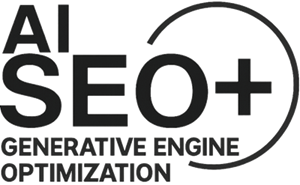How AI is Revolutionizing SEO, Smarter Strategies for Better Rankings

Understanding AI in SEO
AI in SEO refers to the use of machine learning, natural language processing (NLP), and predictive analytics to optimize websites and content for search engines. Unlike traditional SEO, which relies on manual tasks and guesswork, AI-driven SEO adapts to algorithm changes, understands search intent, and delivers data-backed recommendations in real-time.
Why AI Is a Game-Changer for SEO
Here are the key reasons why AI is transforming how SEO works:
- Speed: AI can process and analyze vast amounts of SEO data within seconds.
- Accuracy: AI tools reduce human error and offer more precise optimization techniques.
- Automation: From keyword clustering to content audits, AI handles repetitive tasks automatically.
- Predictive Insights: AI forecasts trends and helps marketers plan ahead based on user behavior.
Top Ways AI is Changing SEO Strategy
1. Smarter Keyword Research
Keyword research is the foundation of SEO. AI-powered tools like Semrush, Ahrefs, and Surfer SEO analyze billions of keywords and help you discover high-potential terms based on real-time data, user intent, and content gaps. AI also groups keywords into clusters, making it easier to plan topic-based content that ranks.
2. Content Optimization with NLP
Natural Language Processing (NLP) enables AI tools to understand how humans search and write. Tools like Clearscope and MarketMuse analyze top-ranking pages and suggest how to improve your content structure, tone, keyword density, and topic coverage — making your content more relevant to Google’s algorithm.
3. AI-Generated Content
AI writing assistants like ChatGPT and Jasper AI are helping marketers generate SEO-optimized blog posts, product descriptions, and meta tags quickly. While human editing is still essential, AI accelerates content creation and ensures it’s aligned with search intent and user expectations.
4. SEO Audits and Technical Optimization
Manual audits are time-consuming and prone to errors. AI-based audit tools like Screaming Frog with machine learning add-ons or Sitebulb provide in-depth insights on technical issues like site speed, crawlability, mobile responsiveness, and core web vitals. These audits help developers fix problems that directly impact rankings.
5. Voice Search and AI-Based Query Understanding
As voice search grows, AI helps you optimize for conversational keywords and long-tail phrases. Search engines use AI (like Google’s BERT and MUM) to understand the context behind voice and typed queries. Optimizing for natural language and user questions has become essential in modern SEO.
6. AI in Link Building
Link building is still a powerful ranking factor. AI tools like Postaga or Respona analyze your niche, suggest outreach opportunities, and even personalize emails to increase backlink acquisition success. These tools streamline and automate the outreach process significantly.
7. User Experience and Behavior Analysis
AI tools like Hotjar and Crazy Egg monitor user behavior such as clicks, scrolls, and bounce rates. This behavioral data helps improve UX, which directly influences SEO performance. Google’s algorithm now prioritizes sites that offer better experiences, faster loading, and lower bounce rates.
The Role of AI in Search Engine Algorithms
Google itself is using AI to improve its search algorithms. BERT, RankBrain, and the newer MUM (Multitask Unified Model) are all AI-based systems designed to better understand search queries and match them with the most relevant content. To keep up, SEOs must focus on relevance, helpful content, and natural language rather than keyword stuffing.
AI Tools to Supercharge Your SEO
If you’re ready to start using AI in your SEO workflow, here are some popular tools to consider:
- Surfer SEO: For AI-based content optimization
- Jasper AI: For creating SEO-focused content
- Clearscope: For real-time SEO content grading
- Frase: For AI-driven content briefs and topic discovery
- Semrush: For keyword tracking, audits, and competitor analysis
Best Practices for Using AI in SEO
While AI is powerful, it’s most effective when combined with human strategy. Here are a few best practices:
- Use AI tools for data collection and insights, not blindly following every recommendation.
- Always review and human-edit AI-generated content before publishing.
- Stay focused on user intent and searcher needs — AI can guide, but empathy wins.
- Continuously test and track performance using analytics and heatmaps.
Will AI Replace SEO Professionals?
No. AI is a tool — not a replacement. While it automates repetitive tasks and speeds up processes, it still needs human creativity, strategy, and understanding of business goals. SEO professionals who learn how to use AI effectively will become even more valuable in the evolving digital landscape.
Final Thoughts: Embrace the AI Advantage
AI is no longer just a buzzword in SEO — it’s a core part of successful strategies. By embracing AI-powered tools and techniques, marketers can gain a competitive edge, create better content, save time, and ultimately achieve higher rankings. The future of SEO is smarter, faster, and more personalized — and AI is leading the charge.
Ready to upgrade your SEO strategy with AI? Start integrating the right tools today and stay ahead of the curve in the digital marketing game.
